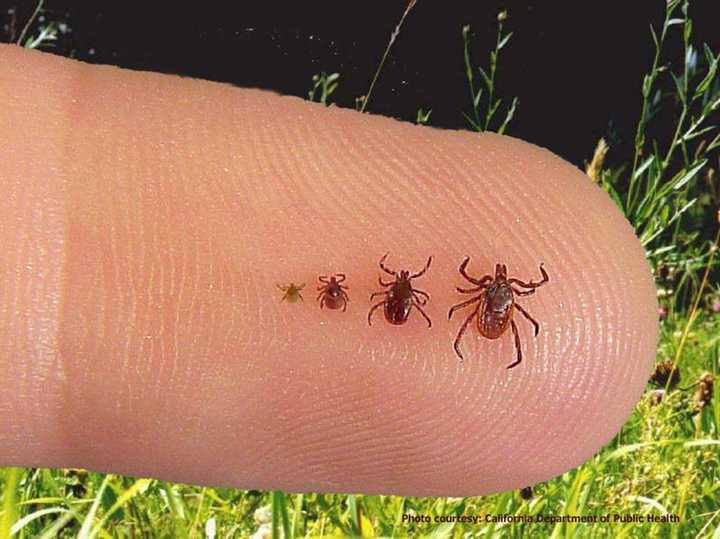Dutchess County health officials confirmed Tuesday that a case of the Powassan virus, a rare but potentially serious disease, has been found in a Dutchess County resident. The individual contracted the virus in the late spring and is currently recovering at home. The precise location within the county was not released.
“Although the risk of contracting any tick-borne disease peaks in June and July, ticks may be active in Dutchess County throughout the year if temperatures are above freezing,” said Dutchess County Health Commissioner Dr. Anil K. Vaidian. “Residents should remain diligent about tick bite prevention practices as they enjoy outdoor activities in these waning weeks of summer.”
Powassan, known as "POW," is named after Ontario, Canada town where it was identified in a young boy who eventually died from the virus.
This past October, a case of the POW virus was also confirmed in Dutchess. Check Daily Voice's report here.
The virus can cause symptoms ranging from a mild flu-like illness to life-threatening neurologic disease. While Powassan virus is a known risk from tick bites, it is a much rarer disease than more commonly diagnosed tick-borne infections like Lyme disease, anaplasmosis, and babesiosis.
Since 2007, there have been a total of 30 cases of Powassan in New York State. Dutchess County has had a total of seven cases, with the first recorded in 2009, the Health Department said.
The best way to prevent a tick infection, including Powassan include:
- Walking in the center of clear, well-traveled trails and avoiding walking through dense woods or brush.
- Wearing light-colored clothing so ticks can be easily spotted; closed-toe shoes; long pants tucked into socks; and long-sleeved shirts.
- Wearing clothing treated with permethrin to repel and kill ticks.
- Using EPA-registered insect repellents containing the active ingredient DEET, Picaridin or IR3535.
“Frequent full-body tick checks and prompt removal of any attached ticks remain a crucial element in preventing transmission of tick-borne disease,” said Vaidian. “We do need to be mindful that Powassan virus has been shown to have the capacity for transmission with short periods of tick attachment.”
More information about ticks and tick-borne disease prevention can be found at DutchessNY.gov/Ticks.
Click here to follow Daily Voice New City and receive free news updates.
